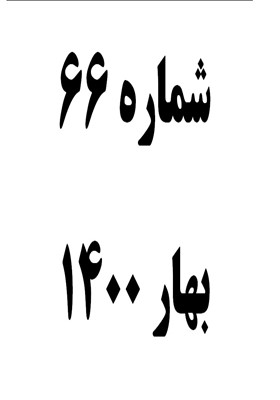اثربخشی آموزش اشعار ریتمیک بر بهبود کارکرد حافظه فعال، کاهش لکنت و اضطراب کودکان مبتلا به لکنت زبان
محورهای موضوعی : علوم تربیتیصمد رحمتی 1 * , ریحانه جباری 2 , طاهره ثمین 3
1 - دکترای روانشناسی تربیتی، دانشگاه شهید چمران، اهواز، ایران.
2 - دانشجوی دکتری رشته مشاوره، .واحد قم، دانشگاه آزاد اسلامی، قم، ایران.
3 - کارشناس ارشد روانشناسی عمومی، واحد علوم و تحقیقات، دانشگاه آزاد اسلامی، تهران، ایران.
کلید واژه: اضطراب, حافظه فعال, لکنت زبان, آموزش اشعار ریتمیک,
چکیده مقاله :
چکیده هدف پژوهش حاضر بررسی اثربخشی آموزش اشعار ریتیمیک بر بهبود کارکرد حافظه فعال، کاهش لکنت و اضطراب کودکان مبتلا به لکنت زبان بود. طرح پژوهش نیمه آزمایشی، با طرح پیشآزمون، پسآزمون با گروه گواه و دوره پیگیری بود. جامعه آماری، کودکان 12-6 سالة مبتلا به لکنت زبان مراجعهکننده به مراکز گفتار درمانی شهر اهواز در سال 1396 بود که به روش نمونهگیری در دسترس تعداد 30 نفر از آنان انتخاب و با جایگزینی تصادفی در گروههای آزمایش (15 نفر) و گواه (15 نفر) قرار گرفتند و به مقیاس سنجش شدت لکنت کودکان (رایلی، 2009)، آزمون تکرار ناکلمه (باریکرو و همکاران، 1390) و مقیاس اضطراب آشکار کودکان (رینولدز وریچموند، 1985) پاسخ دادند. گروه گواه در انتظار ماند و آموزش اشعار ریتمیک برای گروه آزمایش طی 16 جلسه 90 دقیقهای بهصورت هر هفته 2 جلسه اجرا شد؛ در پایان مداخلات درمانی و 2 ماه بعد، مجدداً آزمودنیهای گروههای آزمایش و گواه، توسط پرسشنامههای پژوهش ارزیابی شدند. دادههای با استفاده از تحلیل واریانس مختلط با اندازهگیری مکرر تحلیل شدند. نتایج نشان داد که آموزش اشعار ریتیمیک باعث بهبود کارکرد حافظه فعال و کاهش شدت لکنت زبان و اضطراب کودکان مبتلا به لکنت زبان میشود (01/0>p) و این تأثیر در مرحله پیگیری پایدار میماند (01/0>p). آموزش اشعار ریتیمیک با تقویت نقش نیمکره راست در کنترل زبان و افزیش شاخههای عصبی از طریق شکلدادن و فعال کردن قشر مغز منجر به بهبود کارکرد حافظه فعال و کاهش لکنت و اضطراب کودکان مبتلا به لکنت زبان میشود.
The purpose of this study was to the effectiveness of rhythmic poetry training on improving of working memory and decreasing of severity of stuttering and anxiety in children with stuttering. The experimental design was semi-experimental with pre-test, post-test and follow-up with the control group. The statistical population included all children 12-6 year old with stutterers referring to speech therapy centers in Ahvaz in the year 1396. Among the statistical population of this study were selected 30 people using convenience sampling, and were placed randomly in experimental (n=15) and control (n=15) groups; and responded to Stuttering Severity Instrument (Reynolds & Richmond, 1985),Nonword Repetition test (Barikroo et al., 2011) and Revised Children's Manifest Anxiety Scale (Riley, 1994). The control group was awaited and rhythmic poetry training for the experimental group was carried out in 16 sessions of 60 minutes each week for 2 sessions; Then, at the end of the therapeutic interventions and again 2 months later, the subjects of the experimental and control groups were evaluated by questionnaires. Data were analyzed using mixed variance analysis with repeated measures. The results showed that rhythmic poetry training improved the function of active memory and decreased stuttering and anxiety in children with stuttering and this effect remained stable at follow up stage. rhythmic poetry training by strengthen the role of the right hemisphere in language control and increase nerve branches by forming and activating the cerebral cortex leads to improved the function of active memory and reduced stuttering and anxiety in children with stuttering.
_||_

